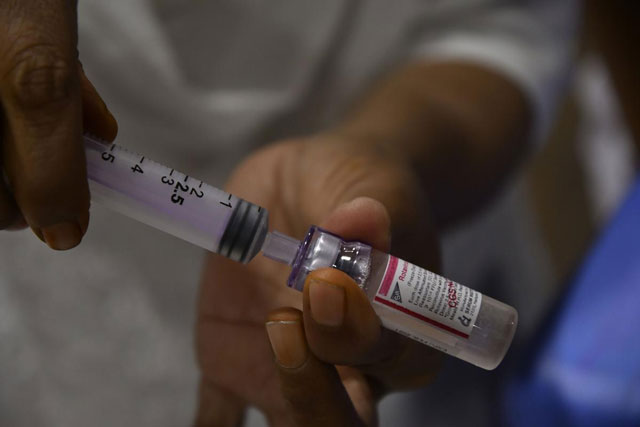Daijiworld Media Network – New Delhi
New Delhi, Oct 19: Dr. Gagandeep Kang, principal investigator of the phase III trials for the Rotovac vaccine, expressed excitement over a recent study confirming the vaccine’s effectiveness across India. Rotovac, developed collaboratively by the Department of Biotechnology, Bharat Biotech, the U.S. NIH, CDC, Stanford University, and PATH with support from the Bill & Melinda Gates Foundation, protects against rotavirus-related gastroenteritis.
Currently heading the Global Health Team at the Bill & Melinda Gates Foundation, Dr. Kang explained that while clinical trials involve carefully monitored healthy participants, real-world effectiveness can vary due to factors like malnutrition and incomplete vaccination. “A successful trial is wonderful, but how it performs outside trial circumstances is key,” she said.

The recent test-negative study, conducted after the government began distributing the vaccine widely, analyzed over 4,000 children—much larger than the 200-participant phase III trial—and confirmed a 54% effectiveness, matching trial results. “If more children hospitalized with diarrhea have not been vaccinated, it proves the vaccine is working,” Dr. Kang added.
Addressing prior concerns about Rotovac causing intussusception, she noted, “We did a safety study with zero evidence of this, and subsequent data confirmed it is not a side effect.”
On the significance of Rotovac for India, Dr. Kang stated, “This shows Rotovac is as good as any international vaccine. India is doing well with rotavirus vaccination, which reached nationwide coverage by 2019, offering it free under the Universal Immunisation Programme (UIP). About 90% of the target population is being vaccinated, but we must reach the remaining 10%.”
She emphasized the UIP’s role in promoting equity: “Every child has a right to protection. Private sector vaccines reach some, but only the UIP ensures all children are covered.” Since measles was introduced in 1986, India has added several vaccines to the UIP, including Rotavirus, pneumococcal, and injectable polio vaccines. HPV and typhoid vaccines have been approved and could further enhance equitable protection.
Highlighting the challenge of vaccine skepticism, Dr. Kang urged reliance on evidence and critical thinking. “We have to build trust in science by being transparent about what we know and don’t know,” she said. She encouraged people to seek reliable sources and cultivate scientific temper amidst a “firehose of disinformation.”
The Rotovac study not only reinforces the vaccine’s safety and efficacy but also underscores the importance of equitable access and public trust in immunization programs across India.